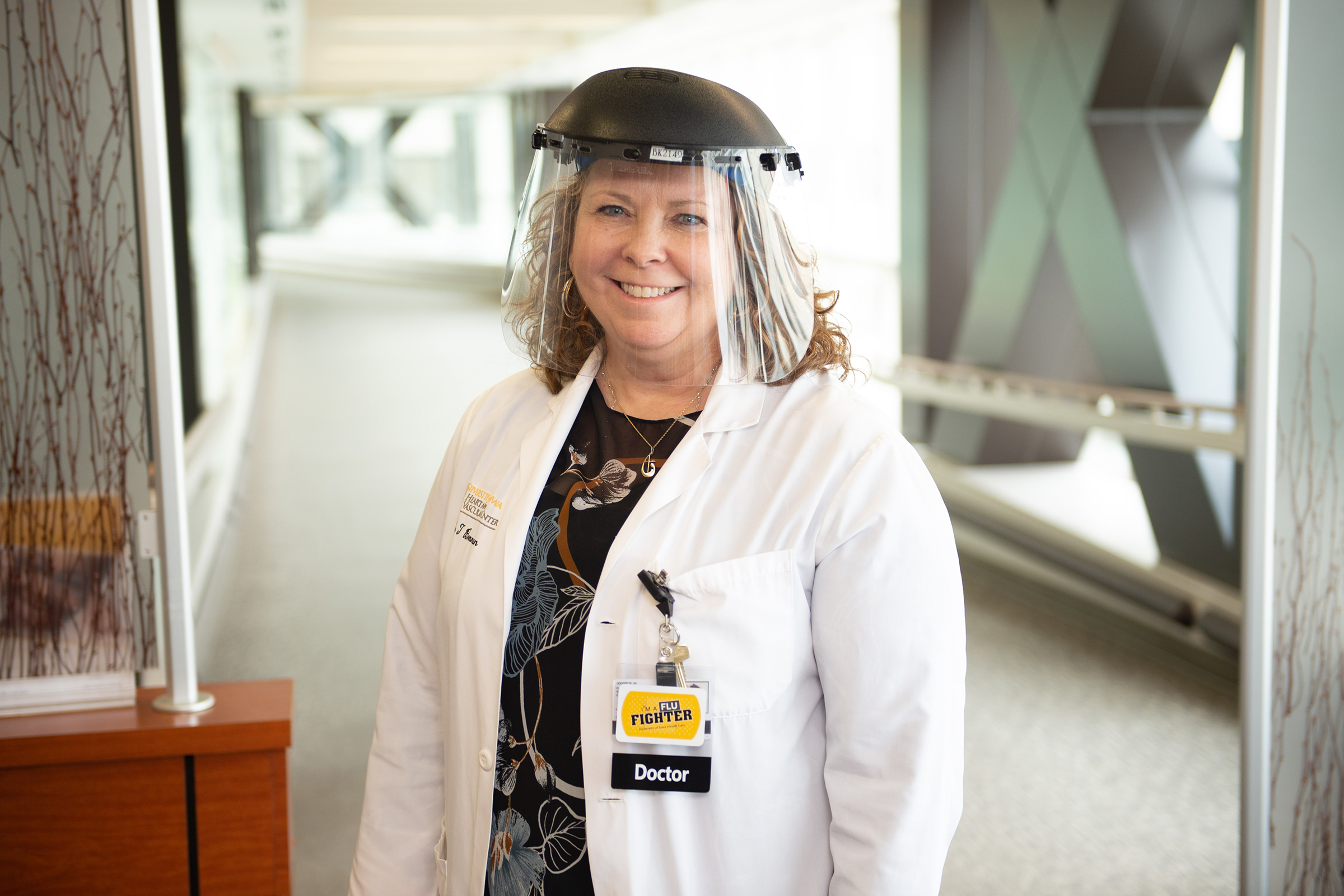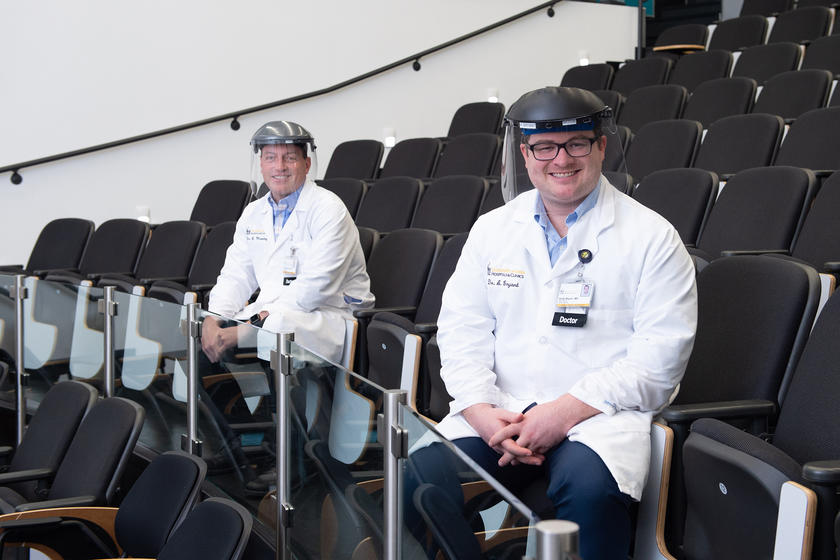Finding positives amid the pandemic

The night University of Iowa Hospitals & Clinics admitted its first patient diagnosed with COVID-19, chief medical officer (CMO) and cardiologist Theresa Brennan, MD, caught a glimpse of what her institution’s staff was capable of during the coronavirus pandemic.
“When that first patient arrived, the team didn’t flinch. They just took care of the patient in a safe manner. It was like every other day,” says Brennan, whose main responsibility as CMO is to oversee the quality, safety, and patient experience at UI Hospitals & Clinics. “It shouldn’t surprise me, but it did. It was really impressive.”

Dr. Bradley Manning and Dr. Andrew Bryant discuss the University of Iowa Hospitals & Clinics program that provides direct daily care and support to patients with COVID-19 who are self-quarantined.
Brennan’s job this spring has hardly been like every other day. Since the virus spread to the United States, the focus of her administrative work has shifted to all matters related to COVID-19, whether it’s policymaking or establishing best practices or coordinating communications. She is at the hospital every day, putting in longer hours and collaborating with colleagues and team members to make important operational decisions: Which groups of people will receive priority for the limited testing available? Where will patients admitted with COVID-19 be housed? What personal protective equipment is needed during various procedures? How will patients and visitors enter the hospital to ensure safety?
“We’ve also developed a surge plan should we see a significant increase in COVID-19 patients,” says Brennan, who completed a residency and fellowship at UI Hospitals & Clinics and has been its CMO since 2011. “I’m not, by any means, doing it alone—we’re all pulling together. When people are anxious and worried, professionally and personally, they can break down, and there can be infighting, but we are working together well. I’ve developed an even greater appreciation for my colleagues and the jobs they do.”
That teamwork put into place the video visit service that was set up to assess COVID-19 symptoms remotely as well as a home treatment plan to monitor patients who test positive for the disease but do not need to be hospitalized. In fact, the implementation of telemedicine services across the hospital, Brennan says, has been very educational—and could lead to increased use in the future.
“Sometimes patients have to be seen in person, but it’s been surprising to me how well these telehealth visits go,” says Brennan, who continues to meet weekly with cardiology patients both in person and over the phone. “The video clinic overall has also gone well.”
“I’m not, by any means, doing it alone—we’re all pulling together. When people are anxious and worried, professionally and personally, they can break down, and there can be infighting, but we are working together well. I’ve developed an even greater appreciation for my colleagues and the jobs they do.”
What’s been tougher, Brennan says, have been the decisions to restrict hospital access—unprecedented but necessary measures to protect patients, visitors, and staff.
“We’ve made a lot of changes to people’s lives, including how they enter the hospital. Despite these burdens, people have been understanding. That’s not surprising—Iowans are great,” says Brennan, who grew up in Shullsburg, Wisconsin. “More difficult was deciding to limit visitors. We know a patient’s recovery is enhanced when they have loved ones around them, so to limit them is heartbreaking.”
Check the coronavirus resources page on the University of Iowa Hospitals & Clinics website for information about scheduling a video visit, visitor screenings and restrictions, and how to donate urgently needed items.
Something positive to result from the pandemic, Brennan says, has been a more collaborative atmosphere among the state’s health care providers.
“I have weekly calls with other CMOs in the region, and we are sharing information with each other about things that are working well at our institutions, such as the home treatment plan we developed. The competitive lines have been broken down,” she says. “We have from the beginning been working closely with the Iowa Department of Public Health. We are also participating in research trials related to COVID-19 treatments.”
Brennan says she has been amazed by the outpouring of support from the community: “Not a day goes by without getting a text or email, perhaps from someone I haven’t seen in a while or who I don’t know very well, expressing gratitude for what our team is doing.”
With so many unknowns during this pandemic, Brennan encourages those working on the front lines to make time for self-care.
“Everyone’s just tired. The constancy of a potential surge is an emotional strain,” she says. “Take time to exercise, get some sleep, and eat well.”